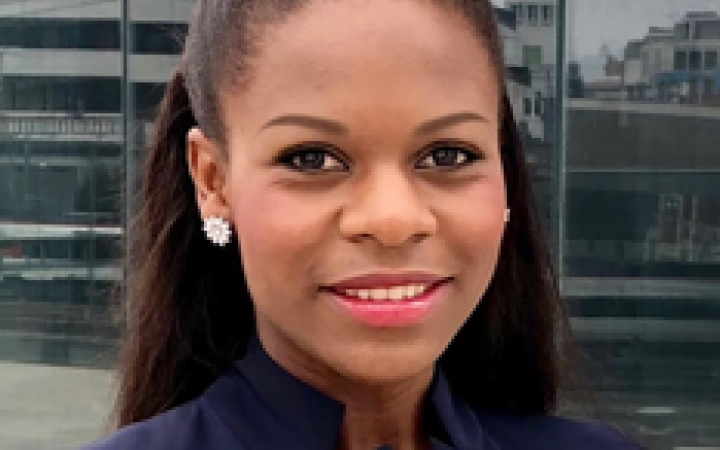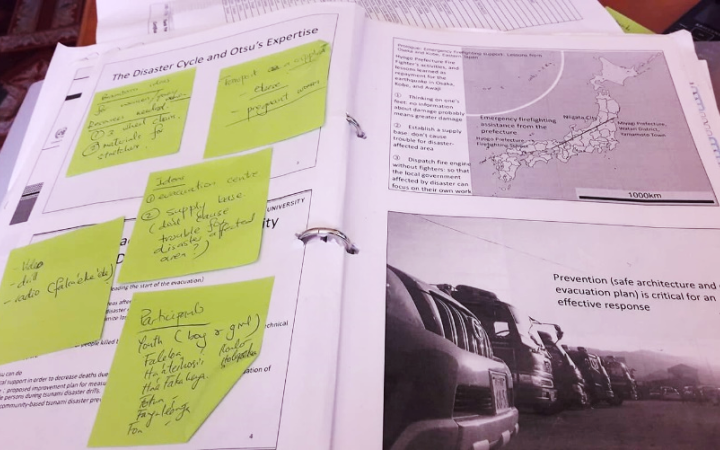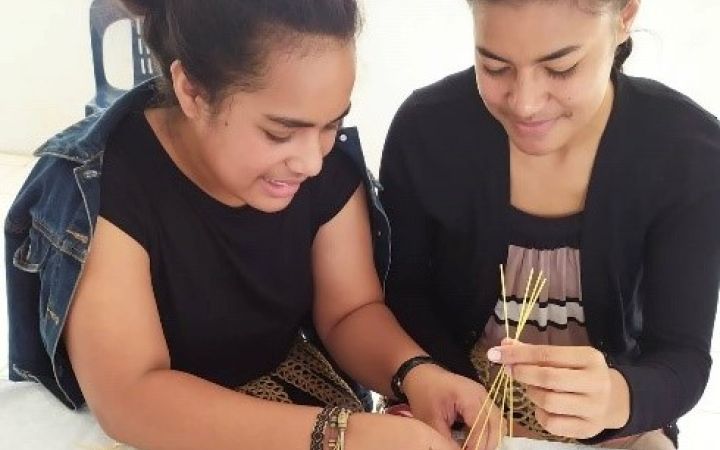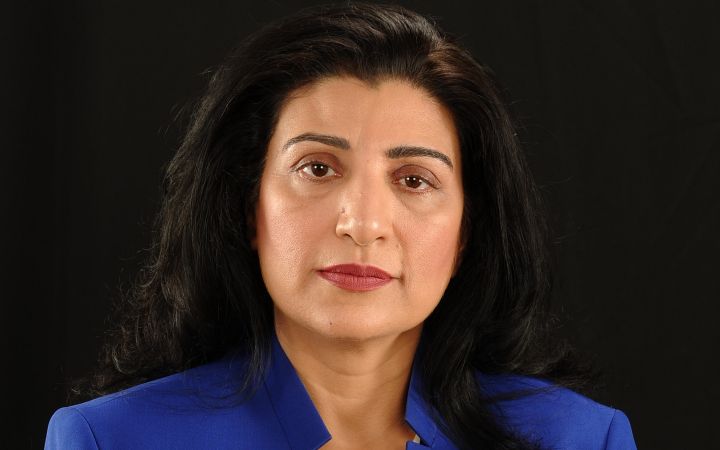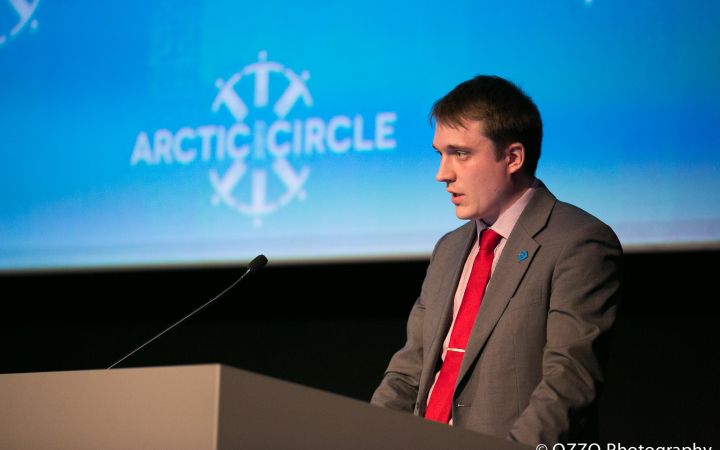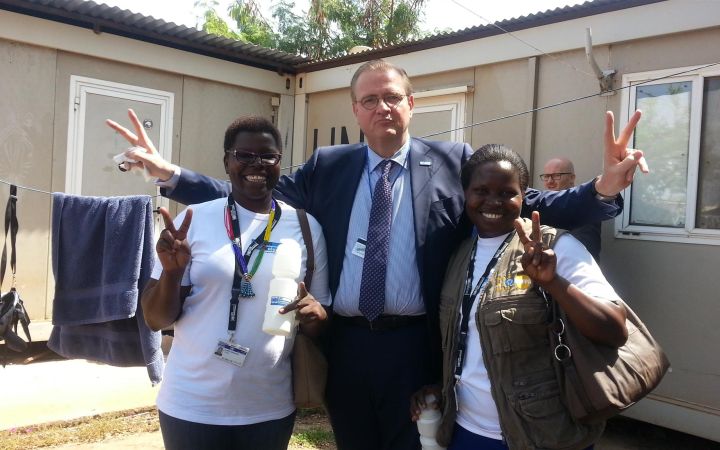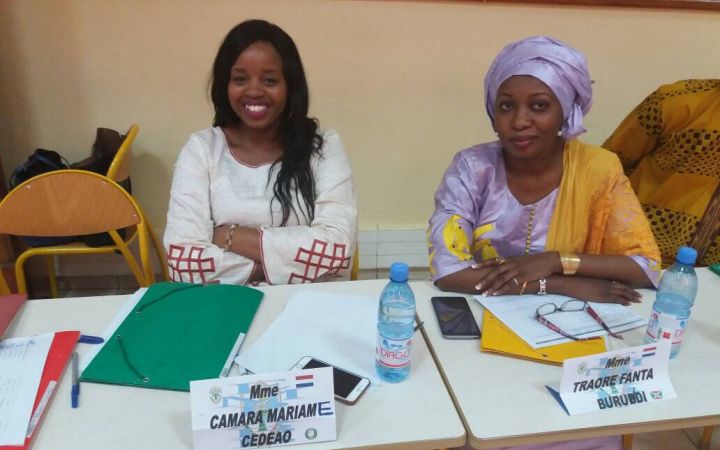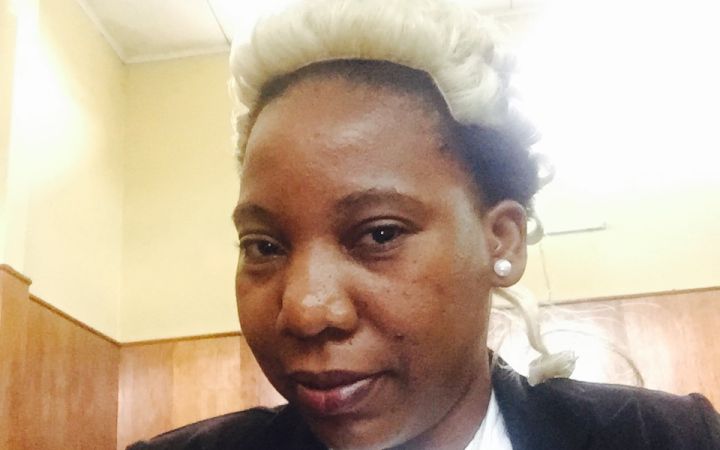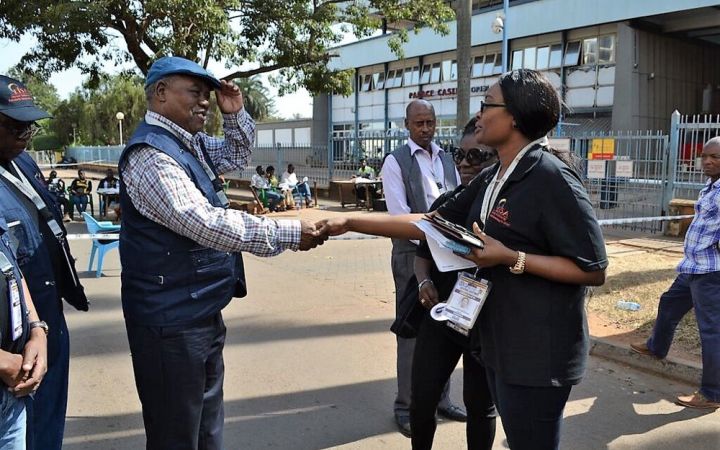Displaying 11 - 20 of 25
With the hackathon, Enas became more inspired to continue promoting healthier lifestyles and cities’ renaturalization with her students. She has replicated some of the methodologies from the hackathon in her classes.
Kossiwa J. Tossoukpe is the founder of KESecurix - Diversity in Security, and a former police officer in Zurich, Switzerland. At age 21, she was the youngest in her police academy class, and the first Black woman to join the force. Kossiwa studied at John Jay College of Criminal Justice in New York and the Graduate Institute in Geneva, Switzerland, where she obtained a Master's degree in International Relations and Global Security. She was also a Trainee at UNITAR's Division for Peace, supporting the pre-deployment training team. Kossiwa's consultancy firm focuses on enhancing and including the voices of female security consultants, and especially those of colour.
Using the knowledge gained from the UNITAR Disaster Risk Reduction Training she took part in, Lu'isa Uai Taunga from Tonga worked on incorporating best practices from around the globe and adapting them to her local context.
When Lu’isa Uai Taunga, an officer with the National Emergency Management Office in the Kingdom of Tonga, participated in the UNITAR Disaster Risk Reduction Training which wrapped up in November 2017, she left with renewed energy and ideas for new initiatives to prepare her community in the island group of Ha’apai in the event of a disaster.
I was a middle-class family child and during my upbringing, I saw many young people in my community whose parents struggled with paying their school fees, especially those for high education. I used to ask myself ‘what can I do to help people achieve their dreams?’
The UNITAR training took place just one week after his first session as a UN mandate holder — the youngest person ever appointed to a UN indigenous-specific mechanism and with the least amount of international experience. “There was no accommodation time, as the work of mandate holders is very responsible and challenging, and indigenous peoples around the world expect results and efficiency from experts.”
I was always a girl who thought that one day maybe I’ll be a big person.
Practitioners from all over Africa were put together with wonderful resource persons and experts, to reflect deeply on mediation, and most importantly, on prevention and transformation of conflict in Africa.
With the start of the reform process, I have discovered that elections were about much more than just dispute resolution, which I had been previously concentrating on, and becoming part of it required from me now a thorough understanding of the whole electoral framework.
"With the new electoral body for the 2011 elections, there has been so much improvement including the 2015 elections and we hope that the elections of 2019 will consolidate the successes furthermore.”



